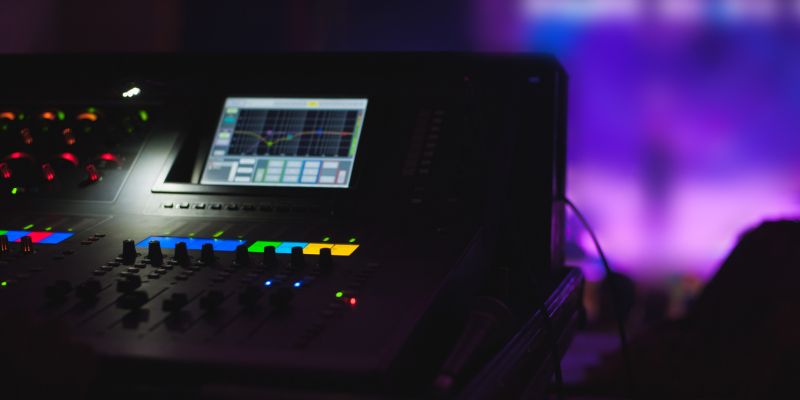The stage is all set. You’ve been practicing for weeks to nail the songs that you’re going to perform in front of a live audience. Your friends and family can’t wait to hear what you’ve got lined up for them.
But wait! There’s a crucial step that anyone playing live needs to take before you can step on stage and wow everyone. As any experienced musician would tell you, a soundcheck is what makes – or breaks – how good you sound live.
So what exactly happens at a soundcheck? It’s important to remember that it is NOT a dress rehearsal for your show. It’s not for last-minute practice or run-throughs of songs that need work. Instead, it’s to adjust and fine-tune what the audience will be hearing during the actual show before it begins—the focus is on making sure that they receive the best possible sound quality from your instruments. It’s also crucial for the musicians themselves to be able to hear the rest of the band clearly. This is done through various steps such as altering the levels of each instrument on its own before seeing how it sounds in the mix and then setting up in-ear or floor monitors.
Say, for example, you show up to a soundcheck and the guitars sound distorted on the speakers for some reason. Or, the drums sound weak by themselves and need to be spruced up with some EQ and compression in order to pack a punch. All these things need to be fixed during the soundcheck with the intention of creating a well-balanced mix that brings the best out of your sound. Plus, since every venue is different in terms of the acoustics and speaker setup available, it becomes necessary to adjust accordingly.
Soundchecks can be very overwhelming, especially when there’s a lot of musicians involved, but there are a few things you can keep in mind before doing one to stay as relaxed as possible:

- Firstly, ensure that all preparations in terms of practice and figuring out parts have been done before the show. That way, you don’t have to waste time on, say, running through a song that was neglected earlier and needs a lot of work at the last moment. What you can do instead is to try a few (fully prepared!) songs from your set during the soundcheck to see if they resemble what you heard while you were rehearsing.
- Preparations for soundcheck begin in the jam room itself. Knowing what kinds of tones you want out of your instruments, what kind of effects will be used during the show and having a clear idea of what you want your mix to sound like beforehand will all be super helpful when the day of the performance finally arrives. Remember – the main goal of a soundcheck is to ensure that the band gets the best chance to hear things the way they should to perform at their optimal best; and that the audience hears the material the way the band intends for them to. So it helps to start early and think about what your final mix should sound like from the very beginning.
- Working with a mixing engineer who knows your setup and requirements well is also an extremely useful tool to have. Instead of starting from scratch every time, you can rely on the experience of someone who’s handled your act before to ensure a more seamless and efficient soundcheck. This is especially true with bands—the more moving parts there are in a musical act, the more difficult it becomes to balance every instrument and vocalist to create a great sounding mix live. That’s where the expertise of a dedicated sound engineer comes in. Think of this person as another band member – and once you’ve spent time working with one, you’ll understand that completely!
- Lastly, don’t forget to have fun with the process! A good soundcheck can be one of the most rewarding and motivating experiences in live music, and will provide an excellent platform for you to go out there and direct all your focus on the performance itself without distractions.
If you ever have a live show coming up and need guidance with any aspect of the performance, Taaqademy is the ideal place to work with veteran musicians who have done countless soundchecks and know the process inside out. We wish you all the best for your live shows, and hope that his post will help you the next time you’re setting up for a performance!

